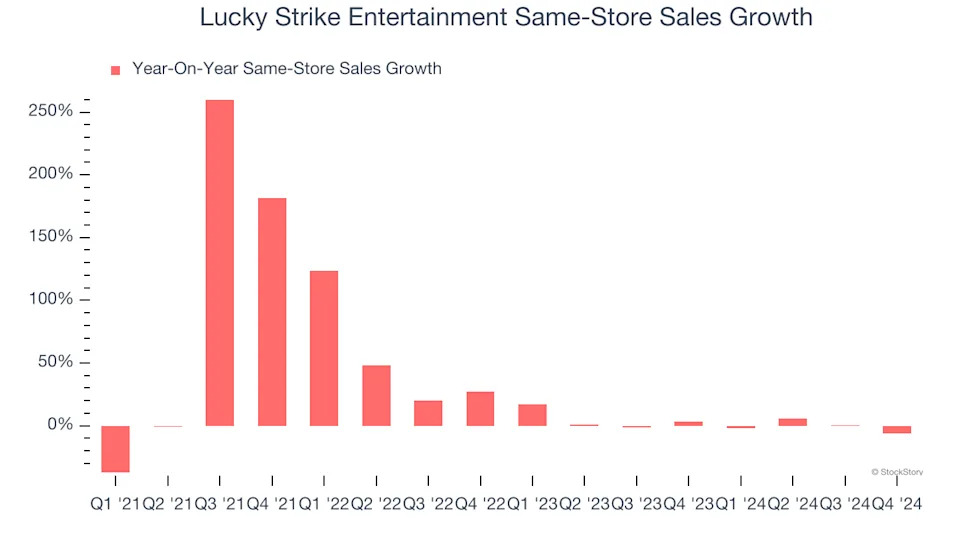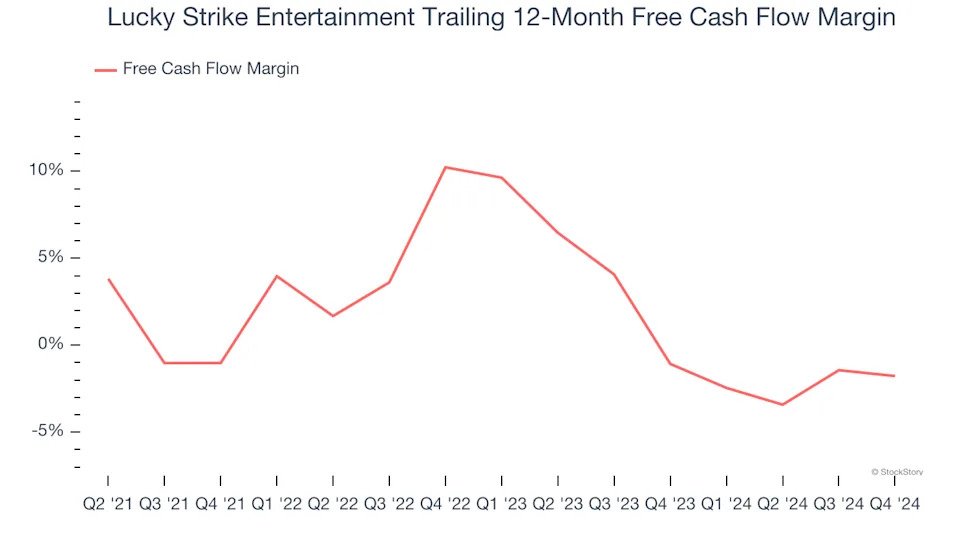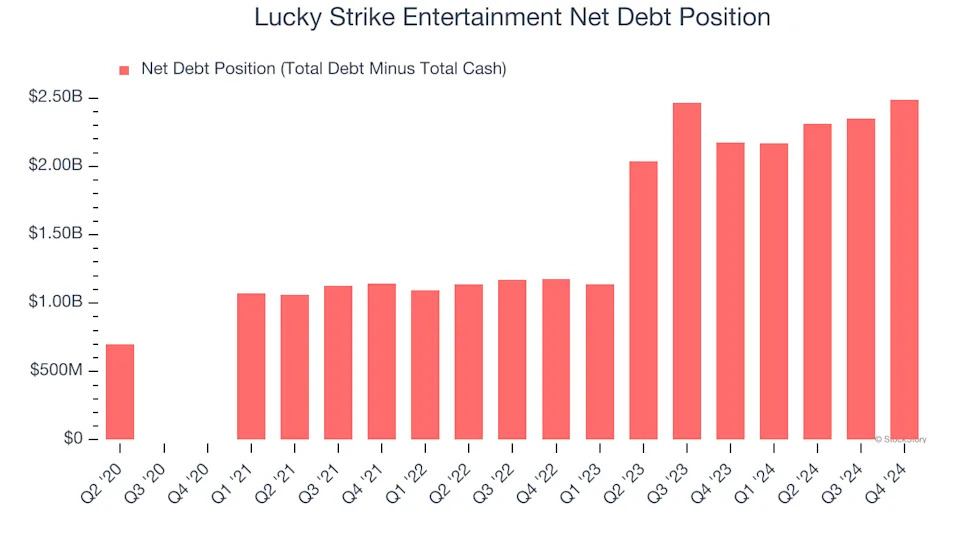
3 Reasons LUCK is Risky and 1 Stock to Buy Instead
Lucky Strike Entertainment’s stock price has taken a beating over the past six months, shedding 20.6% of its value and falling to $9.25 per share. This was partly driven by its softer quarterly results and may have investors wondering how to approach the situation.
Is there a buying opportunity in Lucky Strike Entertainment, or does it present a risk to your portfolio? Get the full stock story straight from our expert analysts, it’s free .
Despite the more favorable entry price, we're sitting this one out for now. Here are three reasons why LUCK doesn't excite us and a stock we'd rather own.
Why Do We Think Lucky Strike Entertainment Will Underperform?
Born from the transformation of traditional bowling alleys into modern entertainment destinations, Lucky Strike Entertainment (NYSE:LUCK) operates bowling alleys and other entertainment venues with upscale amenities, arcade games, and food and beverage services across North America.
1. Same-Store Sales Falling Behind Peers
Investors interested in Leisure Facilities companies should track same-store sales in addition to reported revenue. This metric measures the change in sales at brick-and-mortar locations that have existed for at least a year, giving visibility into Lucky Strike Entertainment’s underlying demand characteristics.
Over the last two years, Lucky Strike Entertainment’s same-store sales averaged 2.2% year-on-year growth. This performance was underwhelming and suggests it might have to change its strategy or pricing, which can disrupt operations.

2. Cash Burn Ignites Concerns
Free cash flow isn't a prominently featured metric in company financials and earnings releases, but we think it's telling because it accounts for all operating and capital expenses, making it tough to manipulate. Cash is king.
Over the last two years, Lucky Strike Entertainment’s demanding reinvestments to stay relevant have drained its resources, putting it in a pinch and limiting its ability to return capital to investors. Its free cash flow margin averaged negative 1.4%, meaning it lit $1.44 of cash on fire for every $100 in revenue.

3. Short Cash Runway Exposes Shareholders to Potential Dilution
As long-term investors, the risk we care about most is the permanent loss of capital, which can happen when a company goes bankrupt or raises money from a disadvantaged position. This is separate from short-term stock price volatility, something we are much less bothered by.
Lucky Strike Entertainment burned through $20.96 million of cash over the last year, and its $2.57 billion of debt exceeds the $80.76 million of cash on its balance sheet. This is a deal breaker for us because indebted loss-making companies spell trouble.
